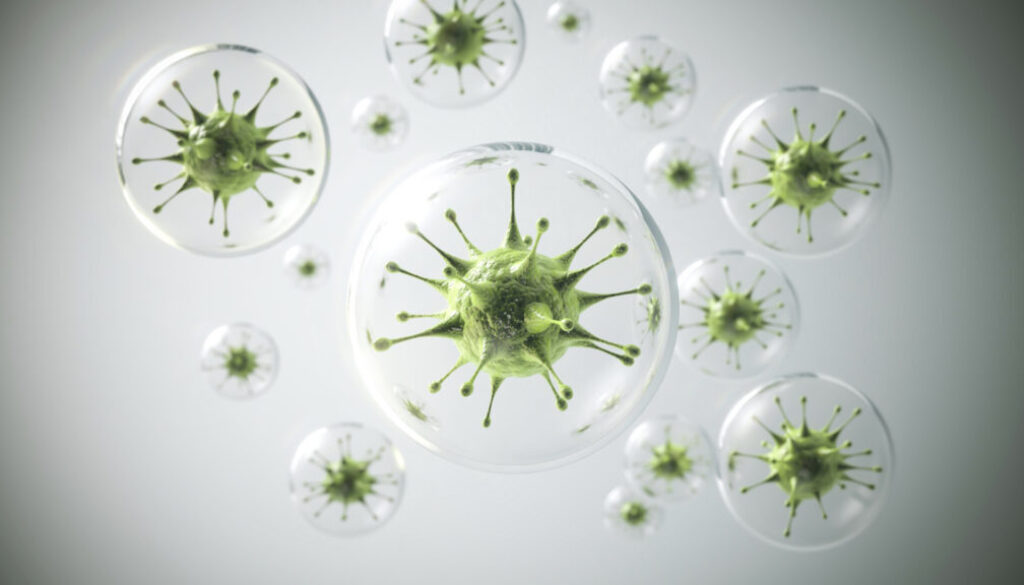El Glutatión y las infecciones virales
Glutatión y las Infecciones Virales: Un Refuerzo Natural para el Sistema Inmunológico
Las infecciones virales son responsables de una gran parte de las enfermedades que afectan al cuerpo humano. El sistema inmunológico tiene que estar en su máxima capacidad para combatir estos patógenos. El glutatión juega un papel fundamental en la función inmunológica, ayudando a fortalecer las defensas del cuerpo frente a virus y otras infecciones.
Estudios Relevantes:
- Un estudio de The Journal of Infectious Diseases (2016) destacó que las personas con niveles bajos de glutatión son más susceptibles a infecciones virales, mientras que aquellos con niveles adecuados muestran una respuesta inmune más robusta.
- En investigaciones de International Journal of Molecular Medicine (2014), se observó que la suplementación con glutatión mejoraba la respuesta inmunológica en pacientes con infecciones virales como la gripe y el resfriado común.
El glutatión ayuda a reducir la inflamación, activar las células inmunológicas como los linfocitos T y mejorar la respuesta a las infecciones virales. Esto lo convierte en un componente esencial para combatir virus comunes y graves, desde resfriados hasta enfermedades más complejas.
Referencias médicas y artículos recomendados:
- “Glutathione and Viral Infections” – National Institute of Health
- “The Role of Glutathione in Viral Pathogenesis and Immunity” – Journal of Clinical Immunology
Si deseas reforzar tu sistema inmune para combatir infecciones virales, el consumo de Glutamore, que contiene glutatión y otros nutrientes esenciales, puede ser una excelente opción para apoyar tu salud inmunológica.
References
- Teskey, G., et al., Glutathione as a Marker for Human Disease. Adv Clin Chem, 2018. 87: p. 141-159.
- Franco, R., et al., The central role of glutathione in the pathophysiology of human diseases. Archives Of Physiology And Biochemistry, 2007. 113(4-5): p. 234-258.
- Townsend, D.M., K.D. Tew, and H. Tapiero, The importance of glutathione in human disease. Biomedicine & Pharmacotherapy, 2003. 57(3-4): p. 145-55.
- Ballatori, N., et al., Glutathione dysregulation and the etiology and progression of human diseases. Biological Chemistry, 2009. 390(3): p. 191-214.
- Pérez, L.M., et al., Glutathione Serum Levels and Rate of Multimorbidity Development in Older Adults. The Journals of Gerontology: Series A, 2019.
- Zarka, M.H. and W.J. Bridge, Oral administration of γ-glutamylcysteine increases intracellular glutathione levels above homeostasis in a randomised human trial pilot study. Redox Biology, 2017. 11: p. 631-636.
- Sgarbanti, R., et al., Redox regulation of the influenza hemagglutinin maturation process: a new cell-mediated strategy for anti-influenza therapy. Antioxid Redox Signal, 2011. 15(3): p. 593-606.
- De Flora, S., C. Grassi, and L. Carati, Attenuation of influenza-like symptomatology and improvement of cell-mediated immunity with long-term N-acetylcysteine treatment. Eur Respir J, 1997. 10(7): p. 1535-41.
- Fraternale, A., et al., Antiviral and immunomodulatory properties of new pro-glutathione (GSH) molecules. Curr Med Chem, 2006. 13(15): p. 1749-55.
- Fraternale, A., et al., GSH and analogs in antiviral therapy. Mol Aspects Med, 2009. 30(1-2): p. 99-110.
- Uchide, N. and H. Toyoda, Antioxidant therapy as a potential approach to severe influenza-associated complications. Molecules, 2011. 16(3): p. 2032-52.
- Reshi, M.L., Y.C. Su, and J.R. Hong, RNA Viruses: ROS-Mediated Cell Death. Int J Cell Biol, 2014. 2014: p. 467452.
- Cai, J., et al., Inhibition of influenza infection by glutathione. Free Radical Biology & Medicine, 2003. 34(7): p. 928-936.
- Rushworth, G.F. and I.L. Megson, Existing and potential therapeutic uses for N-acetylcysteine: The need for conversion to intracellular glutathione for antioxidant benefits. Pharmacology & Therapeutics, 2014. 141(2): p. 150-159.
- Aitio, M.-L., N-acetylcysteine – passe-partout or much ado about nothing? British Journal of Clinical Pharmacology, 2006. 61(1): p. 5-15.
- Martensson, J. and A. Meister, Glutathione deficiency decreases tissue ascorbate levels in newborn rats: ascorbate spares glutathione and protects. Proc Natl Acad Sci U S A, 1991. 88(11): p. 4656-60.



